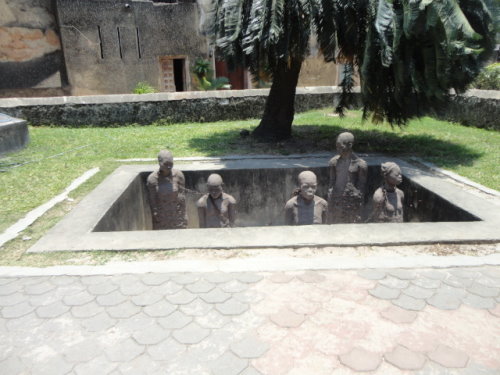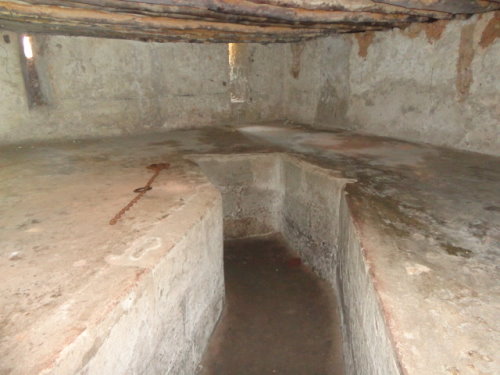Slave Trade in East Africa & The SaharaBy Dr. Akosua Perbi
Before the 1500s, the majority of slaves were moved from East Africa to the Arabian mainland. Arab slave traders as opposed to European traders preferred to carry out raiding sorties, often travelling far into Africa. Their other distinction was that their markets back home preferred to buy female slaves as opposed to male. This was because there was a stronger demand for household maids as well as sexual slaves rather than slaves to work on farms.
Zanzibar became an important sea port for the trade. In 1822, the Omani Arabs signed the Moresby Treaty which amongst other things, made it illegal for them to sell slaves to Christian powers. However, the anti-slaving treaty was widely ignored, and the trade in Black Africans continued. Caravans departed from Bagamoyo on the coast, travelling as far inland as 1,000 miles on foot up to Lake Tanganyika. Slaves who survived the long trek from the interior were crammed into dhows bound for Zanzibar, and paraded for sale in the Zanzibar Slave Market.
The trade in slaves in East Africa at this time was intense. Demand for ivory reached its peak as the industrial revolution in the west made luxury items, such as billiard balls and piano keys, more popular. In 1856 alone, Zanzibar exported a quarter of a million pounds of ivory. Slaves were needed for the arduous caravan journeys upcountry, where diseases such as sleeping sickness killed horses and donkeys. However, burgeoning clove plantations in Zanzibar and Pemba began to create such a high demand for slaves that by the 1860s, more than two-fifths of the 22,000 slaves exported from Kilwa yearly remained in Zanzibar and Pemba. Although British colonial documents described the East African slave trade as “Arab,” less than a fifth of these slaves were transported to the Arabian Peninsula, India and Indian Ocean Islands.
One must understand that the 18th century definition of "Black" did not exist in this period and some so-called Arabs were Arab linguistically but racially African. Thus, the Arab trade in enslaved Africans was not only conducted by Asiatic and Caucasian Arabs, but also African Arabs: Africans speaking Arabic as a first language embracing an Arab culture. These Africans would have been part of the Arab society; they would have permanently resided within Arabia for generations.
The expanding presence of Europeans along the East coast pushed Arab traders to focus on the land slave caravan routes across the Sahara Dessert from North Africa to the Sahel region.
In North Africa slavery was practiced in the Sahara desert and its southern border lands as well as in the region of modern western Sahara, Morocco and Algeria among the Berbers. In the Central Sahara and in the sub desert areas further south, the Tuaregs practiced slavery. In North East Africa, the Ethiopians, Somalis, Egyptians and the people of the Sudan were all familiar with the institution of slavery.
http://www.accessgambia.com/information/east-africa-sahara-slavery.html
Slave cell at Mji Mkongwe (Stone Town), Zanzibar

Slave cells were built below sea level
